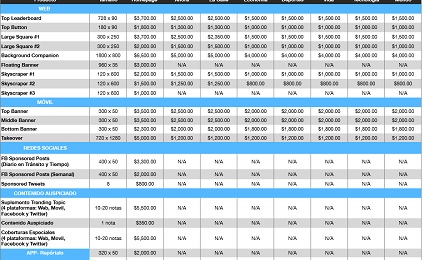“Programmatic marketing” is gaining strength as a buzzword. Is it for you?
First, just what is programmatic marketing? It’s automated digital display advertising — display ads on publisher websites, paying the publisher for the ad space, but it’s programmed rather than bought outright. I read a lot about programmatic marketing and thought, “Google Ads.” And sure enough, that’s what programmatic marketing typically means — buying online display ad space in the same way that you can buy paid search ads.
Of course, you can already buy display ads with Google Ads and publishers can use Adsense to host ads, but marketing via display ads on web pages doesn’t usually work that way. Typically, you contact the publisher of a coveted ad space and ask for their costs and they quote you a price for each of the spaces they have available — $5,000 per month for a top right hand column space on their homepage, for example, or $50 a month for a square spot in the sidebar of the blog. This is more like traditional magazine ad buying than it is like modern pay per click.
Experience
We’ve facilitated this process for clients, and we like to get traffic figures and track the performance of the ads through Google Analytics to get as good a handle as possible on the results. It’s our experience that relying on publishers to give you data can leave you with information that doesn’t align well enough with your website analytics to allow you to compare ad results with your results from other channels, so this is a must. But it usually requires some extra effort. And if you see that the ad is not performing well after 10 days, there’s not much you can do about it.
We’ve seen good outcomes from well-chosen banner ads, though. If your target audience is golfers and you get a good banner ad on a top golfing site, for example, you can see high levels of conversion. It’s a traditional approach to advertising: find a place you think your target market will go and put ads there. Make your ad as compelling as you can and hope people notice it and respond well. So the research ahead of time and the tracking once your ad is placed are key. Expect to pay for five or six months before you can really tell how well it’s working.
Programmatic digital ads
Now publishers who have ad space to offer can work with companies other than Google to automate their ad sales. Your company’s ad can be part of an auction as the webpage loads, just as it is in Google Ads which show up on the search engine results page.
Note that you no longer get a guaranteed space. Your ad might show in the top right hand spot, but it might also get one of the square spaces in the blog sidebar. Your ad shows if you win the auction against your competitors.
On the other hand, automatic ad placement can be less expensive and less time-consuming, and — just as with Google Ads — you can use data to tweak your bids and your landing page and so forth. That means that rather than plunking down $5,000 for that 30-day ad and hoping it provides a good return on your investment, you can make changes to improve ROI all through the month.
This is one of the great advantages of Google Ads over traditional advertising, and it’s nice to see that advantage being provided along with more traditional types of online ads. But the biggest advantage of Google Ads and other paid search ads is that your ads are shown only to people who are actually looking at what you have to offer at that moment. Programmatic marketing lets you have the tech advantages of Google Ads (or at least some of those advantages), but it’s still interruption advertising. People are not necessarily looking for your stuff when they encounter your ad.
This can be a plus for a new product that people are not yet searching for very often. It can be a plus for impulse buy items, or for an ecommerce site with lots of goodies — if you think that getting golfers to your golf gear store is all it takes to tempt them to buy something, whether they actually need anything or not, your banner ad may do better than paid search. And using a programmatic ad platform could give you some of the benefits of Google Ads along with the benefits of traditional ads.
Have you tried programmatic marketing other than Google Ads? We’d love to hear about your experience.


Leave a Reply